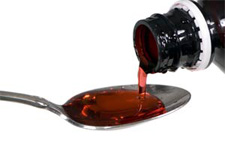Cough Relief

Tips For Cough Relief
If you have ever had a bad cough, you may have already started to look for some kind of cough relief. When people become sick with things like a cold or flu, the lungs can become congested. Mucus forms within the lung and coughing is the body's natural way of expelling that mucus. A bad cough and cold can also be accompanied by a slight fever and a clogged nose. Many people believe that if they continuously blow their nose, they can remove the congestion and stop the cough but this is not the case. To stop coughing and get some cough relief, you will have to try other methods.
Since the lungs are actually affected, you will have to try to address the problem there. Luckily, there are many things you can do to get cough relief. If you do have an illness like the flu and you have a fever or nausea, you should probably go see a doctor. You may have an illness that is bacteria related and in this case, antibiotics should begin to help with the problem. But if you have a cold or a virus antibiotics will do nothing to help with this problem. Taking antibiotics for a cold or virus is a bad idea. It can lower your resistance to penicillin and the next time you need it for a bacterial infection it may not work.
There are many over the counter remedies for cough relief and they can all do different things. Decongestants can help clear the nasal passages of mucus. This can help you breathe more efficiently but if a cough accompanies nasal congestion, you may need more than one remedy. Nasal decongestants can also cause excitability. So if getting rest is also an issue you would be better off to try something else.
Anti histamine is the perfect choice for clearing a nose with mucus and it does the opposite of the decongestant. It causes drowsiness and should never be taken while driving or operating machinery. But if you are trying to get cough relief and plan on resting or staying in bed, then an anti histamine and cough suppressant can really help.
Cough suppressants help to stop an irritating cough. It actually suppresses the cough impulse within the lungs so that the mucus does not trigger any further coughing. This type of remedy should only be used if your lungs are severely affected. If your lungs are tight and breathing becomes difficult, you may need an expectorant.
An expectorant is used for heavy lung congestion. This is when the lungs are clogged with mucus and it is difficult to cough it up. Expectorants can help loosen the mucus so that it can be coughed up. But if the lungs are very congested and breathing becomes a chore, then it may be a good idea to see a doctor because you may have a bacterial infection or a bought of bronchitis.
There are also some home remedies that are known to give cough relief. Drinking hot liquids like teas or soup can also help with congestion. The steam or heat can loosen up mucus so that it is easier to cough up. Aspirin can help with any side effects of coughing, like a headache or sore throat. It is a pain reliever and can help with any discomfort from coughing. Taking cough drops throughout the day can also help to suppress coughs as well.
If you are suffering from a bad cough the best thing to do is to get plenty of rest. You should eat healthy foods to keep strength up to fight your illness. Both of these things can help boost the immune system to help fight off the coughing problem.